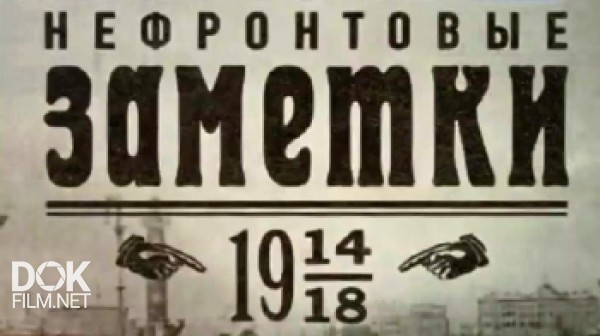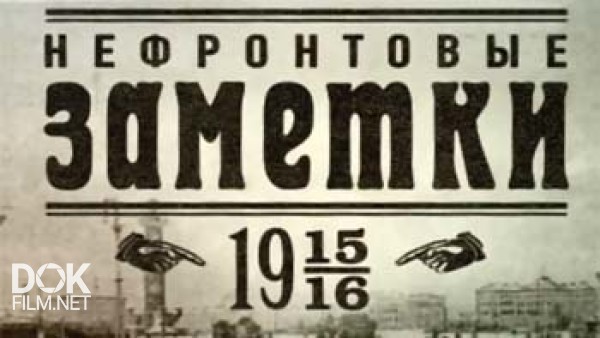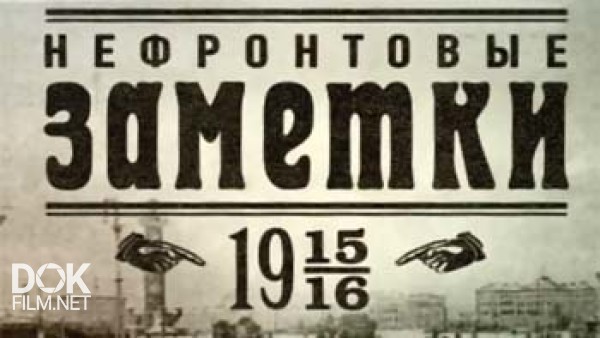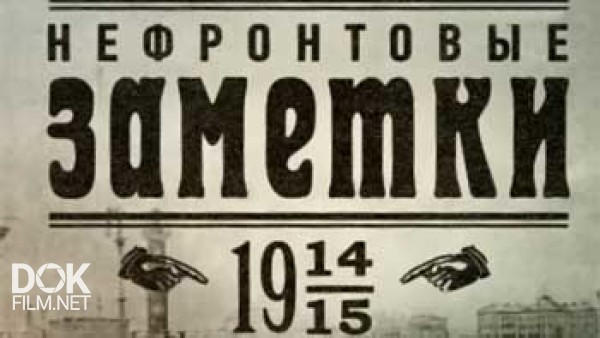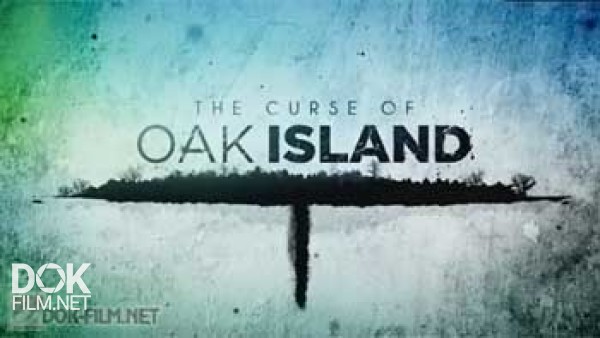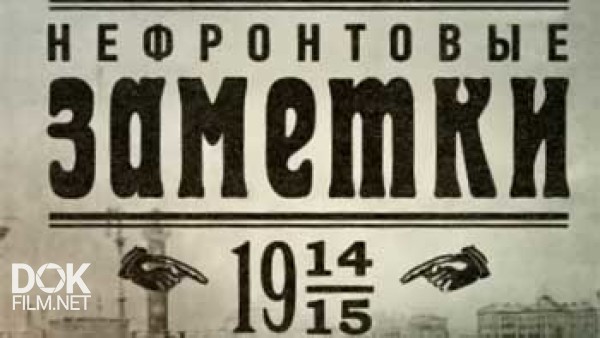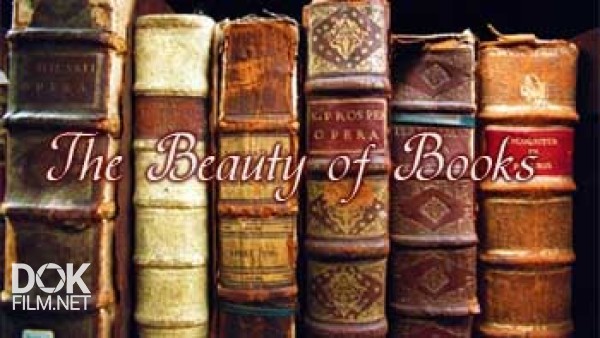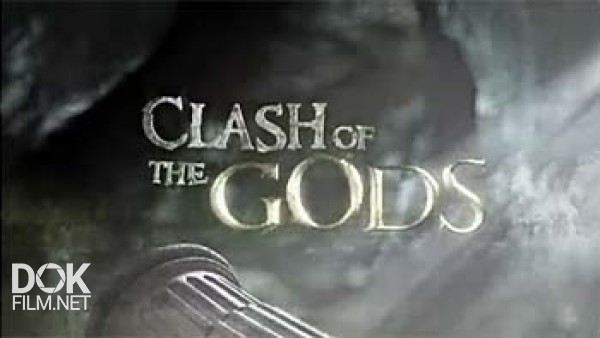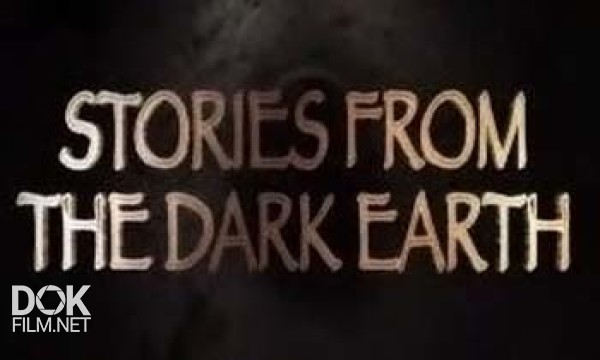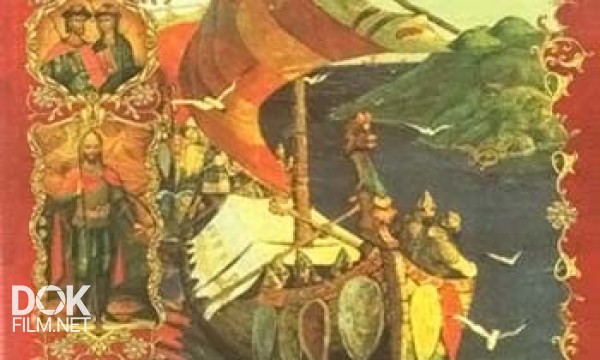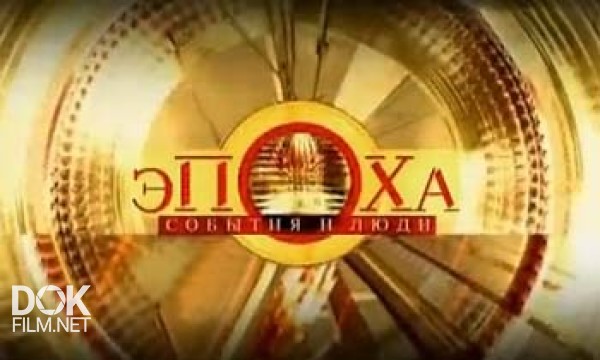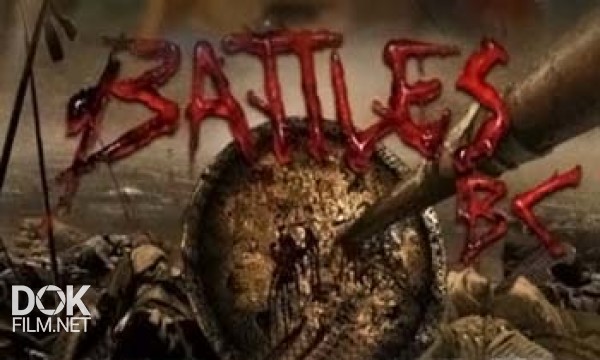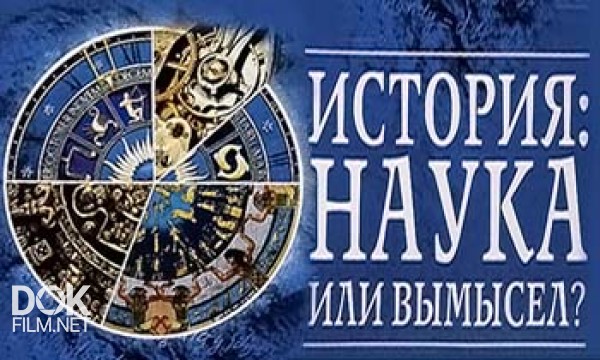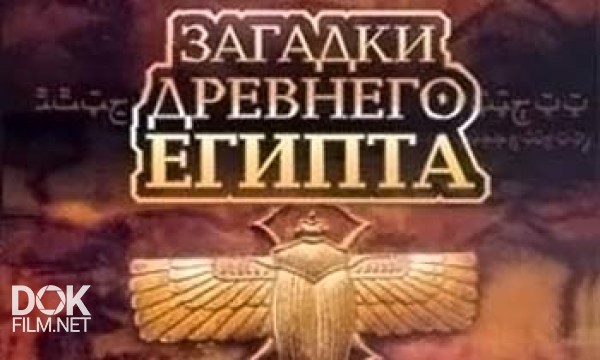01.05.2013
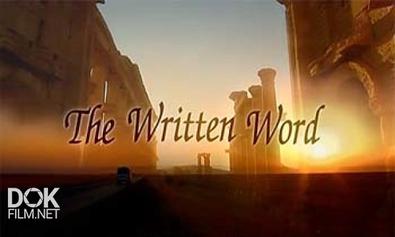
Задумывались ли вы когда-либо о том, что не всегда существовала письменность и, соответственно, отображение разговорной речи на бумаге, холсте, камне и так далее. Где и когда люди сначала начинали писать? На протяжении достаточно длительного периода, люди думали и считали, что практика записывать тексты началась в древней Месопотамии приблизительно в 3000 году до нашей эры.
3 серии
серия 1 — Зарождение письменности
серия 2 — Бесконечный поиск
серия 3 — Революция алфавитов
Реклама — это единственный доход для поддержки и развития нашего сайта, но в текущий момент
рекламу не смотрят или блокируют, доходов не хватает даже на оплату хостинга.
Поддержите нас, если можете! Спасибо за понимание!
Другие документальные фильмы на эту тему
Загадки Века / Сезон 2 (2017)
Этот документальный цикл рассказывает о событиях, которые оставили важный след в мировой истории и имеют непосредственное отношение к нашей стране. Сериал основан на подлинных фактах, полученных из недавно открытых архивов ФСБ, СВР и РГВИА. Кроме этого в каждом фильме будут выдвинуты версии, во многом меняющие ранее существующее представление о том или ином событии. Версии будут подкреплены подлинными документами и мнениями авторитетных экспертов и историков. Каждая серия представляет собой детективную историю, расследовать которую будет ведущий – известный журналист Сергей Медведев. Рассказчик свободно перемещается по студийному пространству, обращается к собранным там предметам, описывая тот или иной эпизод, комментирует хронику и документы. Он — двигатель сюжета..
Нефронтовые Заметки / Серии 94 — 125 (2017)
Современники называли Первую мировую войну Великой, но со временем она стала фактически забытой. Эта война была незаслуженно отодвинута на «обочину» общественного сознания, скрывая свои тайны в тени жертв и катастроф Второй мировой. Об одной из самых неизученных страниц трагической истории нашей страны речь пойдет в документальном сериале «Нефронтовые заметки».
Включены кадры кинохроники, фото- и архивные документы.
Добавлена серия 125 (177-я неделя войны)
Нефронтовые Заметки / Серии 79 — 93 (2016)
Наступила последняя осень императорской России. Жители столицы встретили ее не слишком радостно. В Петрограде повсюду очереди. Стоимость жизни петроградской рабочей семьи по сравнению с довоенным временем выросла в 4 раза…
101 — 126 недели войны, 2 июля — 30 декабря 1916 года
Нефронтовые Заметки / Серии 59 — 78 (2016)
1915 год заканчивался. Петроградцы готовились встретить Рождество и Новый 1916 год.
Год начался наступлением русских армий по всем направлениям. Особенно радовали вести с Кавказского фронта, где генерал Юденич удар за ударом гнал отступавших турков.
75 — 100 недели войны, 2 января — 1 июля 1916 года
Нефронтовые Заметки / Серии 23 — 42 (2015)
С начала Первой мировой войны прошло 152 дня. Наступил январь 1915 года. До Рождества Христова оставалось всего несколько дней, и горожане готовились отметить один из самых любимых праздников в Российской империи.
В императорской России новогодняя ночь с 31 декабря на 1 января не считалась большим праздником, а просто была календарным рубежом между годом уходящим и годом наступающим.
2 января — 2 июля 1915 года, 23 — 48 недели войны
Проклятие Острова Оук / The Curse Of Oak Island / Сезон 2 (2014)
В Северной Атлантике есть загадочный остров, где люди более двухсот лет ищут зарытые сокровища. Поиски начались в 1795 году, когда три подростка нашли странное углубление в почве. При раскопках там был найден фрагмент золотой цепи, небольшой клочок бумаги с буквами и большой каменный блок с высеченными на нем странными кодами и символами. Эту странную яму прозвали «денежной шахтой» и со временем прорыли на глубину 30 метров, но один из кладоискателей наткнулся на ловушку, затопившую шахту морской водой. Что же находится внизу? До сих пор не знает никто. Точно известно одно — все, кто пытается раскрыть тайну острова, становятся одержимыми поиском истины.
10 серий
Нефронтовые Заметки / Серии 1 — 22 (2014)
Современники называли Первую мировую войну Великой, но со временем она стала фактически забытой. Эта война была незаслуженно отодвинута на «обочину» общественного сознания, скрывая свои тайны в тени жертв и катастроф Второй мировой. Об одной из самых неизученных страниц трагической истории нашей страны речь пойдет в документальном сериале «Нефронтовые заметки».
1 августа 1914 года – 1 января 1915 года,
1 — 22 недели войны
Очарование Книг / The Beauty Of Books (2011)
14 миллионов книг хранится в Британской библиотеке. Протяженность полок составляет более 600 километров. Каждый год в библиотеку поступает 300 тысяч новых книг, заполняя ее новыми шедеврами. Древние тома не просто хранят знания, но и являются свидетелями нашей истории. На протяжении веков книги продолжали знакомить людей с новыми идеями. Именно от книг зависит наша точка зрения на окружающий мир и на самих себя. Иногда книгам удавалось даже менять ход истории.
серия 1 — Древние Библии / Ancient Bibles
серия 2 — Средневековые шедевры / Medieval Masterpieces
серия 3 — Страна чудес в картинках / Illustrated Wonderlands
серия 4 — Судьба мягкой обложки / Paperback Writer
Компас Времени / The Time Compass (2009)
На протяжении истории многие народы достигали своего расцвета, но как бы сильны они не были большинство из них рано или поздно поглощали другие народы. Древние цивилизации страдали от вторжений, некоторые цивилизации навсегда исчезали в песках времени, но некоторым из них в том или ином виде удалось сохраниться до наших дней. В этом научно-познавательном фильме интересно и увлекательно рассказывается о некоторых народах древнего мира.
14 серий
Битвы Богов / Clash Of The Gods (2009)
Очень часто первые представления о добре и зле мы получаем из знакомых с детства мифов Древнего мира. Тысячелетия назад эти «наивные» истории о богах помогали древним осознать окружающий мир, выработать правила жизни и поведения в обществе. И вы ошибаетесь, если думаете, что древние боги умерли. Их истории до сих пор живут, образуя громадную часть культуры, а мифы о любви, преданности, предательстве и возмездии являются богатой основой для современного кино. Боги и люди — 10 потрясающих исторических фильмов: Лабиринт Минотавра, Тор – Бог Грома, Беовульф и другие захватывающие истории.
10 серий
Истории О Древней Земле / Stories From The Dark Earth (2013)
В различных уголках Британии археологи находят древние реликвии. Современная археология — это по большей часть то, что происходит после раскопок. Сегодня последние достижения в области криминологии и других наук меняют всё наше представление о целых эпохах древней истории. Археолог Джулиан Ричардс вспоминает о прошлом, чтобы рассказать самые интересные истории о наших древних предках.
4 серии
Курская Битва. Время Побеждать (2013)
В нашей историографии традиционно датой начала битвы на Огненной дуге считается вторник 5 июля 1943 года, так как в этот день началось общее наступление групп армий «Юг» и «Центр». Ряд зарубежных исследователей придерживаются иной точки зрения, которые ведут отсчет с 4 июля…
серия 1 — Операция «Цитадель»
серия 2 — Разменная монета фюрера
серия 3 — Начало конца
серия 4 — Контрудар, отмененный Сталиным
серия 5 — Танковое сражение века
серия 6 — Операция «Кутузов»
серия 7 — Партизанские тропы
серия 8 — Операция «Полководец Румянцев»
Повесть Временных Лет (2010)
Мультипликационная иллюстрация к одноимённому летописному своду, составленному в XII веке монахом Киево-Печерской обители, преподобным Нестором Летописцем. Летопись вобрала в себя в большом количестве сказания, повести, легенды, устные поэтические предания о лицах и событиях древнейшей истории, начиная с ветхозаветных времён. «Повесть временных лет» излагает историю славянских народов от первых киевских князей. Датированная часть истории Древнерусского государства начинается с 852 года, начала самостоятельного правления византийского императора Михаила. Заканчивается Летопись началом XII века. Это самый ранний летописный свод Древней Руси.
24 серии
Эпоха. Cобытия И Люди (2010-2011)
Документальный цикл о личностях, которые изменили мир. Проект рассказывает о личной жизни людей, которые влияли на ход истории, развитие государств.
39 серий
Великие Сражения Древности / Battles Bc (2009)
Война — рискованное предприятие, в котором на карту поставлена судьба цивилизации. У великих воинов древности не было учебников по стратегии и тактике, не было современного вооружения. Правда и мифы о великих битвах прошлого оживают в потрясающей компьютерной графике, которая позволит своими глазами увидеть подвиги Александра Великого, восстание спартанцев, походы Ганнибала, величайших воинов и злодеев, творивших историю до нашей эры.
8 серий
История: Наука Или Вымысел? (2009)
Научные книги и музейные экспозиции, исторические романы и кинофильмы убеждают нас, что об истории человечества известно почти все и практически на любой вопрос пытливого разума у историков обязательно найдется готовый ответ. Однако если мы вглядимся в наше прошлое более пристально, то обнаружим там множество странностей и нестыковок…
24 фильма
Из Чего Это Сделано? / How Do They Do It? / Сезон 5 (2008)
Истории появления самых обычных предметов, которые можно найти в любом доме — полны тайн и великих идей, о которых никто даже не подозревает. Что же скрыто за этими повседневными вещами, которые в наше время считаются лишь обыденностью?
20 серий
Запретные Темы Истории. Загадки Древнего Египта (2005)
Фильм «Загадки Древнего Египта» создан на базе уникального материала, снятого в ходе нескольких экспедиций, и основан на фактах и гипотезах, которые умышленно замалчиваются академической наукой, поскольку грозят обрушить привычную картину далекого прошлого человечества. Целый ряд объектов закрыт для широкого доступа, а съемки их запрещены.
серия 1 — Тайны семи пирамид
серия 2 — Вечный ремонт
серия 3 — Технологии богов
серия 4 — Поиск знаний богов
серия 5 — Логика наоборот
серия 6 — Великий трансформатор

6/10
Fails to explore the depth of its character
In Bee Season, a film by Scott McGehee and David Siegel, a suburban Oakland family discovers meaning and purpose in the Kabbalistic concept of tikkun olam, translated as repairing the world. Adapted by Naomi Foner Gyllenhaal (Running on Empty) from the novel by Myla Goldberg, the film explores the subject of Jewish mysticism and its effect on a dysfunctional family. Relying on the teachings of Isaac Luria, a 16th century Jewish Kabbalist, Berkeley Professor Saul Naumann (Richard Gere) instructs his students that God created the world by forming vessels of light but, as He poured the light into the vessels, they shattered and became countless shards. Thus, humanity’s task is to free and reunite the scattered Light and restore the broken world. Naumann is an intellectual who reaches out to God but cannot connect with his family and they mirror the broken shards rather than the Divine Light.
Saul is close to his musically gifted son Aaron (Max Minghella) with whom he shares a love of music but ignores his 11-year old daughter Eliza (Flora Cross) until her talent for spelling is recognized and she wins local and regional spelling bees. He takes advantage of the opportunity to become closer to her by training her for the national championship and encouraging her to explore the mystical states that he only relates to conceptually. He sees in Eliza the potential to put into practice the teachings of the Kabbalah scholar Abulafia that enlightenment can be achieved through alignment of letters and words. He tells her that «many cultures believe that letters are an expression of a special, powerful energy; that when they combine to make words, they hold all the secrets of the universe.» Yet as Eliza and her father delve further into their studies, they forget to look around and see that the people around them are in trouble.
Aaron rejects his father’s teachings and turns to Hinduism at the encouragement of a young woman named Chali (Kate Bosworth). He pretends to go on a weekend camping trip but instead dons orange robes and spends the time at a retreat for Hare Krishna followers, much to his father’s displeasure. Unfortunately, the story treats his decision to explore a different faith as an adolescent lark rather than a legitimate spiritual quest and we never discover his true reasons for his interest. Meanwhile, Saul’s wife Miriam (Juliette Binoche) has flashbacks of a car accident that killed her parents. She takes the phrase Tikkun Olam «to repair the world» — literally and steals small glittering objects from people’s homes in order to reconstruct the world but her own world begins to spiral downward. The sub-plots are not well developed however, and the characters’ behavior is insufficiently motivated to be plausible.
The heart of the film lies in the transformation that is taking place within Eliza, dramatized in the spelling bee competitions. Although she has never seen or heard of a particular word before, she is able to visualize it in different ways by concentrating with her eyes closed, depicted on screen by clever special effects. We follow the gifted speller as she moves through one competition after another and marvel at how she is able to remain centered while the world around her is crumbling. The acting is credible and Cross is a promising newcomer but Gere emotes too much personal warmth and «star quality» to be fully convincing as a self-centered, emotionally detached Jewish scholar.
Bee Season has a potent message in so far as it celebrates an individual’s use of personal power to alter their experience of reality. The filmmakers, however, fail to clarify what the film is trying to say. Various threads compete for attention: Eliza’s personal experiences of God, Saul’s Kabbalistic teachings, Aaron’s turn to Eastern religion, and Miriam’s sickness, but none are sufficiently developed to make a coherent statement. Even the ending that is supposed to bring some resolution leaves us scratching our heads. Bee Season is a well-intentioned film that tackles an important subject but ultimately fails to fully explore the depth of its characters or the true meaning of its message, and I found its suggestion that a family can love God but not each other to be incongruous.
55 out of 64 found this helpful.
Was this review helpful? Sign in to vote.
Permalink
7/10
E-l-i-z-a
If there is a novel that doesn’t lend itself for cinematic adaptation, «Bee Season», written by Myla Goldberg, would seem to be the one. It doesn’t help that the screen play, as written by the talented Naomi Foner Gyllenhaal, doesn’t help to clarify for the casual viewer what is going on with the Naumanns of Oakland. In fact, the problem in the novel, as well as with the movie is Miriam, the distant mother who has fled reality and lives in a world of her own.
«Bee Season» co-directed by Scott McGehee and David Siegel feels empty because the somber treatment they have given to the movie. The dark cinematography of Giles Nuttgens doesn’t help either, but the musical scores of Peter Nasher works well, as a whole.
One enters the Naumann world through the sensitive Eliza, a girl much older and wiser than her 11 years indicate. It is Eliza who senses all that is wrong with her family, as it appears they are falling apart in front of her, and as a little girl, she simply can’t do anything at all to bring everyone together. As a way to escape the unhappy home, Eliza immerses herself in the spelling bee contests in which she excels. Not until then, does she get the attention of her father, who supports her newly found talent.
Saul, the religious studies professor, doesn’t even come aware about what’s wrong with his marriage until it’s too late. In fact, he is a man appears to be unable to communicate with the illusive Miriam, a woman who is deeply disturbed by what happened in her own life with the tragedy of her parents death. Saul and Miriam’s marriage is over, but they don’t do anything to correct the situation. Miriam’s problems come to a head when she is taken away and makes Saul confront the many issues that he probably never dealt with before.
Aaron, the older son, is rebelling against his own religion. He needs to experiment with other beliefs because he is at that stage of his life in which he is trying to find out who he is. That is why when he meets Chali, the young Hare Krishna follower, he decides to follow her in his quest for finding a guidance for his life.
The ensemble playing is dominated by the youngest cast member, Flora Cross, who makes a luminous Eliza. Her expressive eyes and her intelligence tells everything about her. Juliette Binoche’s Miriam is a puzzle. Richard Gere does what he can with Saul and Max Minghella has some good moments as Aaron. Kate Bosworth is seen briefly as Chali.
«Bee Season» is a difficult film to sit through because it is a dark look into a family falling apart without a safety net. Also, the way the film has been promoted gives a false impression about its content.
87 out of 111 found this helpful.
Was this review helpful? Sign in to vote.
Permalink
A Film to be Viewed with a Thirsty Mind
BEE SEASON is a strange little film that seems to polarize the public. Though many have dismissed it as fragmentary and superficial, taking the time to bear down on the issues merely touched upon yields an emotional as well as spiritual experience not often found in films. With a cast that includes Juliette Binouche and Richard Gere there should be a hint there may be more to the film than a quick glance might reveal.
Based on the highly successful novel by Myla Goldberg the story enters the household of a family of four: Saul (Richard Gere) is the father who is a professor of spiritual studies; Miriam (Juliette Binouche) is the mother suffering with demons from her past loss of her parents as a child leading her to grow without an intact family; Eliza (Flora Cross) is the daughter who seems content to watch TV instead of paying attention to her schooling; and Aaron (Max Minghella) is the son who excels at playing the cello and who is the focus of his father’s life. When it is discovered that Eliza has a penchant for spelling and wins a spelling bee the focus of this family abruptly changes. Suddenly Saul moves his attention to Eliza, convinced that she has the power of the influx of God-knowledge (shefa) described by the Kabbalist Abraham Abulafia. This leads to his prepping her for her constant victories at spelling bees, but it also leaves Aaron without focus and he responds by seeking first Christianity then Hare Krishna for the meaning of his life. At the same time Miriam becomes more isolated and secretive and enters a state of depression that reflects her childhood loss and the need to accumulate ‘things’ in a number of ways that border on mental breakdown.
The film is best viewed, by the way, by first watching the featurette about the reasons for the making of the film — a wise commentary that gives us enough philosophical background to appreciate the message of the story that seemingly has eluded directors Scott McGehee and David Siegel. Watching the explanation of how religions all act to provide frameworks that should help individuals to piece together the fragments of existence that have been given to us as our lives serves to bring into focus how each of the four characters in this story is each on that journey for meaning. Once viewed, this featurette makes the movie far more meaningful and enjoyable.
The screenplay by Naomi Foner Gyllenhaal (yes, the mother of Maggie and Jake) is minimalist in technique of writing, giving just enough information about the big questions to make us work to paste the story together. The cinematography by Giles Nuttgens and special effects by Sean House are used extraordinarily well to underline the mysticism that permeates the film’s story. Peter Nashel’s musical score accompanies the otherworldly atmosphere that helps to bring the audience into the mood of the film.
This may not be a great film, but it is a unique one that calls upon the audience to think and free-associate with the characters, each of whom is well enacted by a strong cast. Well worth viewing. Grady Harp
47 out of 59 found this helpful.
Was this review helpful? Sign in to vote.
Permalink
5/10
An attempt to be mystical that just doesn’t work
Warning: Spoilers
Several other reviewers have commented on the fractured nature of this film. It appears to be a Kabbalistic approach to healing shattered reality, put together as a parable.
I know very little about Kabbalism, so that may be why so many pieces were nonsensical to me. Some things, however, were clear on reflection. Eliza’s choice at the end was a redemptive sacrifice. It was a way of turning Saul’s obsession back upon itself, so he, when he was brought up short by the apparent disaster, would be accessible once again to his family. The final implications are that she is successful in this, and happy with her choice. Eliza also connects with her mother through the camera, and apparently starts her back on the road to healing.
There are some very nice uses of glass and kaleidoscope imagery as metaphors of shattered personality and lives, particularly for the mother, but for all the characters to some extent.
All of that makes sense, but as a whole, it just doesn’t work. The mother has apparently been in a psychotic break for many years, and no one noticed? The son, who seems to have a close relationship with both his father and his sister, responds to the father’s extra time with Eliza for the bee with petulant jealousy, and finally runs off to join the Hari Krishnas, without any indication of why he is searching or why the traditions of his family do not work for him. His motivation seems to be nothing more than an exceedingly pretty face.
The daughter, Eliza, is the hardest one to believe of all — even though she is masterfully represented. In an unusual form of Deus Ex Machina, she restores the shattered family by having paranormal abilities, and then denying those abilities as a sacrifice to redeem the ones she loves. (I suspect this is part of Kabbalistic mysticism, but I don’t know.) In one spoken letter, she brings sanity back to her shattered family, reeling in all the fragmented pieces, just as her father had described, and her mother had tried and failed to do. It’s a nice idea for a parable, but I found the final answer too pat, the mystical portions glossing over frightful danger, and the pain of the family both believably intense yet unbelievably represented, and I could not believe the solution.
Maybe it is because my own spiritual views are vastly different from the writers, but it was painful to watch, and neither satisfying nor helpful.
11 out of 11 found this helpful.
Was this review helpful? Sign in to vote.
Permalink
I Wish More Had Been «Spelled Out» For The Audience
Since I have not read the novel upon which Bee Season is based, I cannot evaluate the film’s interpretation of the book. It seems, however, that there is more occurring within the characters of this story that is not stated or developed within the screenplay. And unfortunately more needed to be conveyed, and developed in order for this film to affect the audience in a useful way. Plot Summary: The film is about an intellectual, dynamic family. Eliza (Flora Cross) enters a school spelling bee, wins, and soon realizes she has the ability to visualize words and their correct spelling. She says she feels and sees the word «talking to her.» Her father, Saul Naumann (Richard Gere), a professor of Judaic Mysticism at a San Francisco university later decides that Eliza has the unique ability to speak to God. He becomes preoccupied with nurturing and developing this «gift» within his daughter, and in the process falls out of touch with his son Aaron (Max Minghella), who becomes disillusioned with his faith in Judaism and rebels against the influences of his father. Aaron begins studying Buddhism after meeting a female romantic interest who is sympathetic to his expressed feelings of emptiness and detachment. Saul’s Wife, Miriam (Juliette Binoche), struggles with her own detachment from reality as she continues to mourn the death of her parents who died in an accident when she was young girl. My Analysis: Like some of the characters in the film, I too left the film somewhat empty, or unfulfilled. I wanted to know more about what was going on with this family. The relationship between Gere’s character and his son is somewhat familiar — a son rebels against a father who is too strongly pushing his faith and interests. This form of rebellion seems typical of most adolescents. The mother and daughter share the unusual relationship; both of whom seem to possess certain supernatural powers. While it is the daughter’s power to visualize and spell that is the focal point of the film, it may well be a similar ability that drives her mother to mental illness. The relationship between them should have been developed more, however. I wanted to know what the mystical-supernatural ability meant, but the screenplay doesn’t explain much, and this is frustrating. In addition, when it becomes apparent that Miriam is suffering from a severe mental disorder and continues to mourn the death of her parents, I questioned why her husband was so utterly unaware of her suffering as it had been going on for some time. He was an intelligent man who had great concern for the welfare of his family, and it didn’t seem to fit his character. The film might merely be about a domineering father and the influence his beliefs have over his family. But I’m hoping it’s more than that. The story goes to pains to make it clear that there is a very real supernatural element at work here, but the film doesn’t do enough to convey what this means and why it’s important. I appreciate movies that are efficient, that don’t hold my hand through everything and that give me credit for making inferences to tie a storyline together, or even leave the story purposely ambiguous so as to allow for interpretation, but in the case of the Bee Season, the subject matter is too abstruse and the story is too underdeveloped. I could not reach a satisfactory understanding of what occurred and why it was important. The acting was strong, however. Binoche, Gere and company make the best of an underdeveloped script. The quality of the acting makes the problems with the script even more frustrating because it seems like this film could have been much more.
92 out of 118 found this helpful.
Was this review helpful? Sign in to vote.
Permalink
6/10
Indolent look at a kaleidoscope of themes.
Warning: Spoilers
Well, just about every kind of quirk you might expect to find in a nice Jewish academic family in Berkeley is tucked away somewhere in this leisurely trip through misunderstandings.
Richard Gere, gone white and looking great, does most of the talking and most of the moving. He teaches Hebrew Studies, he coaches his son on the cello, he always cooks dinner at home. (Pretty liberated, eh?) Now Gere isn’t frenetic as he sometimes has been, as in, say, «Power». His buzzing activity mostly stands out because nobody else has much of it.
His wife, Juliette Binoche, has lost her family and wanders around with all the substance of a wisp of smoke. It turns out she’s covering up some quirky activities, even for a family like this. She has a garage full of broken trinkets she’s collected from other people’s properties. They hang from the ceiling in a multitude of sparkling threads, tinkling a little bit, as Gere discovers them and goggles at the sight.
Then there’s the son, Aaron. Gere is a devoutly religious man who would like to be a mystic but is reduced to merely studying Jewish mysticism. But the son? Well, he’s a whiz on the cello. With a father like Gere you could hardly be other than a whiz at whatever he urged you to try. And Aaron is searching for God too. But where does he find God? In the now-defunct Hare Krishnas. Of course it could have been worse. Aaron might have dug up some suicide cult. But still, for some people it must be getting a bit tiresome to deal with people who have learned that God is communicating with them. Andy Warhol once claimed that he’d been given a dead phone but that God was supposed to be on the other end waiting for his call. Warhol never made the call because he could never think of anything to say. Doctor Fielgut’s advice is this: Do find God, if you can, but then whatever he tells you keep it to yourself.
Oh, yes. Then there’s the little daughter, reserved, soft, vulnerable, unamazing in any way until she discovers that she has some form of synesthesia regarding words. When she hears «cotyledon» defined, she closes her eyes and is swirled about with leaves. When Gere finds this out — WOW! TWO geniuses in the family, not including him and Juliette Binoche who is «a scientist.» Aaron and his cello are put on the back burner while Gere hovers over his daughter and tells her emphatically that God is in the letters. In the end she teaches him a valuable lesson too, humility.
There’s something distasteful about judged performances like spelling bees though. I say this not only because Barbara Lukashinsky came in first, to my second, in a fifth-grade spelling bee, just because I misspelled a stupid word like «nickel» and she got it right. No, it’s not that at all, even though she didn’t deserve first prize.
It’s that like other judged performances, spelling bees are a zero-sum game. One can only «win» at the expense of someone else. It’s competition in its purest form. You win the prize by beating everyone else. But who wins a prize for cooperation? Or self sacrifice? Roger Bannister was the first person to run a 4-minute mile. Does anyone remember who was the second runner to break four minutes? It isn’t that competition is necessarily bad per se. It can boost team solidarity and even be fun. The main problem with spelling bees is that they encourage lazy, categorical thinking about either «victory» or «defeat», while «compromise» has no part in the contest.
This is a pretty slow movie. It’s almost European. It’s stuffed with far too many themes, like the kaleidoscope (did I spell that right?) that Binoche hands down to daughter Emily. Impossible to grasp them all. But it’s a nice change to see a film that challenges us.
4 out of 4 found this helpful.
Was this review helpful? Sign in to vote.
Permalink
Letters to God
tedg25 April 2006
Warning: Spoilers
I am coming to believe that no effective movie can be deeply spiritual. We know the problem with cinematic love: how do you show it? Sex? Placed in the midst of larger flows like war?
Mystical forces are similar, internal. A bond, a sway that cannot be seen by definition, cannot be visually displayed.
Its a real challenge for the serious filmmaker who is tired of stories about spiritual awakening as sports contests. The solution we have here is clever. Yes, I know it was solved first in a novel, that the larger structure wasn’t immediately intended for the eye. But what the author and screenwriter put together is very good cinema if somewhat stupid on the spiritual side.
The first thing is how the idea is surrounded by the four characters. Ostensibly, the display is anchored and explained by the father. He plays double duty, teaching (in words) about the mystical tradition he studies, professes and failed in his attempt to follow. He also provides the human problem of blind expectations that haunts the others in his family. Its a tired formula, even if the spiritual piece is substituted for the more common failures, and wouldn’t be enough if the supposed secondary stories didn’t eclipse it.
The apparently number two character is the daughter who wins spelling contests because she has this gift, this insight that her father lacks. This coincidence: of the mystical tradition and the spelling of words by deep «seeing» is what makes the story work, and also happens to be the thing that makes it antispiritual at least so far as it selfadvertises. More about that in a minute.
Then there’s the older son. Oh, this is when the Jewish imposition comes: the son is simply rebelling, and it matters that he leaves a religion of the written word for a chanted one. Dramatically, this is the least interesting occlusion, though it shows that the author understood how words play in the thing.
Finally, the mother. We are seeing this movie primarily through the eyes of the dad, so the mother’s actions seem at first inexplicable and incidental. Later we are convinced she is mad and was so from the beginning. Under the spell of her husband’s spiritual notions, she engages in an obvious misunderstanding of what it means. Or so we are meant to believe.
The structure of the thing is why I want to recommend it to you, but the spiritual message is off. Perhaps necessarily so, as I’ll explain.
Here’s the plot: Father studies Kabbalah. Daughter apparently has the gift he studies. The Dad’s understanding of Kabbalah is one that novices have, that words carry the essence of the thing, so their constituents (namely the letters) are the atoms of God’s breath in the world, motivating and reflecting all in creation and creation itself.
So when the daughter closes her eyes in the contest and «sees» the letters assemble, she is one with the coupling force of God. She is an adept. Meanwhile, her mother is ill and the daughter discovers this right before the ultimate context. She performs the forbidden Kabbalistic exercises right before this contest so that she has the powers of a fuller adept.
She deliberately loses the contest, thereby healing her mother, and surprising her father with her wisdom. That’s the story a novice viewer will see. But the point and construction is that there is an alternate flow here. I’ve told you the apparent plot so that you can imagine the realer one underneath.
The dramatic tension isn’t between father and daughter, but daughter and mother. The father is a doofus, who makes the same mistake we as viewers do. In Kabbalah, there are several blinds, just as in a way the Bible itself is supposed to be a blind to first level of Kabbalah. In that first level, is the stuff the father spouts in this movie, that letters matter, or that they denote some ineffable spiritual soulflies.
This is the stuff of the modern Kabbalah Institute we know from yearning movie celebrities. Real Kabbalah is beyond that, beyond its Jewish confines, escaping into softer and broader Christian, Mulsim and alchemical Judaic wisdom (mostly from the Spanish confluence). It is, as it happens usually visual and folded. In fact, my own awareness of this tradition comes from study of folded narrative.
(The girl’s last two spelling words are «syllogism» and «origami.»)
So.
Just as within the story there is a deeper vision beyond what you see, so is there a deeper story. The mother is the adept. Her actions seem insane to her husband, and therefore us. But she is the one who turns her relationships (all of them, including the sex), into the ability to influence events. As with any magi, she does this indirectly through others, invisibly. All the others will think they are in control in some important way, but they are not.
I would like to recommend this to you for the way it is put together. It is cinematically something between «Beautiful Mind» and «Pi» but far, far better than they in conveying what it is like to be a mathematical mystic. The tradition hinted here, the one that envisions the world geometrically, is the parent of what we now call mathematics.
I recommend you take the movie seriously (perhaps more seriously than the directors) and see the underlying story, whatever you may recognize.
But the spiritual notions on the surface are as mundane as the politics in «V for Vendetta,» If you want better mysticism in this tradition, go to «Ninth Gate» and «Drowning by Numbers.» The former brings inner visions to cinema and the latter the other way around. Or perhaps «Andrei Rublov» for the travails of an artist in this quest.
Ted’s Evaluation — 3 of 3: Worth watching.
16 out of 24 found this helpful.
Was this review helpful? Sign in to vote.
Permalink
10/10
Excellent Movie
I know most people don’t give this movie a very good review and that’s unfortunate. It is a very deep movie and the viewer is made to think. It’s not the kind of movie where everything falls into place and everything ends up happily ever after. If that is the kind of movie you like then this one is not for you. If you like a movie that is deep and has a very serious story line then this is the one.
I will try to put this in as simple terms possible; the story is mostly based around Saul Naumann, the father (Richard Gere) and his daughter Eliza (Flora Cross) both superbly acted by the way. Saul is a professor on the Jewish Religion and he very much wants to get closer to God but is unable to. Saul is a very domineering husband and father, very self-centered, so is unable to see the problems that are dividing the family, or maybe he sees it and doesn’t want to admit it.
When his daughter begins to win at spelling bees he thinks that somehow Eliza is linked with God and that is how she sees the word and can spell it correctly. He begins teaching her like she was one of his students by using the thesis he wrote to become a professor. In this thesis it lays out the plan to get closer to God, he tried it for himself but couldn’t, so he decides to try it on his daughter.
Saul’s wife Miriam (Juliette Binoche) has many problems stemming back from the time her parents were killed in an auto accident when she was a young girl. I’m not going to go into specifics here but if you pay close attention to the scene where he is talking to his class you will understand how this is linked to Miriam’s problem and how she has decided to solve it. Also pay attention to the scenes where I’m assuming they were fist married (flash backs) and he is explaining to Miriam the same thing he has been talking about with his class in that scene I mentioned. Because Saul is so domineering and self-centered he doesn’t realize that she even has a problem until it all explodes and he finally becomes aware of what she is doing. Miriam tries to explain to Saul why she did what she did and if you listen closely to what she says you will understand.
The son Aaron (Max Minghella) has a good relationship with his father and is shown a lot of attention by him until Saul begins to spend more and more time with Eliza. I think Aaron may be a little jealous of Eliza because she is now getting all the attention but I don’t think that is his real problem. I think he also wants to get closer to God and is not sure how so begins exploring other avenues other religions. He becomes involved with another religion and feels this may be what he has been looking for. When Saul finds this out all hell breaks loose and he finally realizes that the whole family has many problems.
Meanwhile Eliza thinks she is the reason for all that is happened and tries to converse with God to correct it. By this time Saul is convinced that God is interacting with Eliza when they go to the final spelling bee, The Nationals.
This is just a very basic outline of the movie, of course I have left out a lot of the movie because I don’t want to give too much away and you should see this for yourself and come to your own conclusions. Give this movie a chance and I think you will like it.
24 out of 33 found this helpful.
Was this review helpful? Sign in to vote.
Permalink
6/10
Austin Movie Show review — transcendent
Imagine growing up in a family of academics, musicians, and Jewish mystics. When 12-year-old Eliza (Flora Cross) wins both the district and regional spelling bees, her father, Saul (Richard GereJewish mysticism, begins to tutor her daily. Not only is he preparing her for the state spelling bee competition, but Saul is also training his daughter to be the mystic he wasn’t able to become. Bee Season is not only a movie about meditation, but it is also itself a meditation. This family is consumed with finding God, but they all look outside of the family to find it, and in the process, the family falls apart. Eliza’s older brother Aaron (Max Minghella) is so jealous that his sister is getting all of the family’s attention that he goes off and joins a Buddhist cult, and everyone in the family is so focused on their own problems that no one notices the mother (Juliette Binoche) going slowly insane! Bee Season is transcendent and thought-provoking, and it even makes me want to go out and look for God.
31 out of 54 found this helpful.
Was this review helpful? Sign in to vote.
Permalink
3/10
No Chemistry Btw Characters
Perhaps I wasn’t in a particularly patient mood when I rented this flick, however I just couldn’t finish it after an hour. The actors had no chemistry whatsoever. I adore Juliette Binoche, but there was no tension/attraction/emotion between her and her supposed husband played by Richard Gere. Richard Gere did not suit the role of a Jewish, brooding intellectual. Flora Cross was interesting and quirky, but again her relationship with other characters seemed forced. (I must say that I am a large fan of the chin cleft, it’s a wonderful thing…). The entire book was dumbed down, the magic was rendered laughable. I suggest you spare yourself the experience.
16 out of 21 found this helpful.
Was this review helpful? Sign in to vote.
Permalink
1/10
A preposterous script
No one of the characters acquires the slightest level of credibility in this failed attempt to produce a movie with a touch of transcendence. The first philosophical comments by Richard Gere promise -at least for the connoisseur- a glimpse into the deeper side of human life that, unfortunately, never comes to get going in this insipid movie. The presence of French Juliette Binoche -a delightful actress- is insufficient to get this movie out of the hole of inconsistency and nonsense. Nothing seems real, the characters are completely undeveloped. The audience is deluded into believe that this movie is going to tell something insightful about Inner quest, mystic search and emotional alienation in close relationships. The movie seems a failed try to mix the American look with the European touch in movie making.The author, director ad crew, must keep looking to produce something meaningful of the sort. Richard Gere (as well as has happened to Kevin Costner) needs to find a way out of this dreadful trail of later. His fans -and I am one of them- are sill waiting!
26 out of 40 found this helpful.
Was this review helpful? Sign in to vote.
Permalink
10/10
a mesmerizing tour de force: don’t miss it!
I saw this film last night at the Toronto Film Festival. I am a fan of the book, and wondered how the story could be successfully adapted as a film. I worried that the ideas were too complicated, the characters too subtle, to make the transition. When I heard that Richard Gere was going to play the role of the father, I had more serious doubts. (Richard Gere playing a Jew? Almost as ridiculous as Melanie Griffith!) But I needn’t have worried. The film is nearly a masterpiece. A subtle, emotional journey through a world of spelling bees, Hare Krishna, Kaballah, Kleptomania, and the gorgeously rendered interior spaces of the imagination. Beautiful, original special effects, delightful characters, great acting. The girl who plays the daughter is excellent, as are the other actors. Juliette Binoche is heartbreaking and mysterious, Richard Gere is perfectly cast as the self-absorbed (Jewish!) father, and Anthony Minghella’s son is also in the movie, believe it or not, and he’s very good.
There are changes from the book. But the overall feeling is very similar. The movie is neither as funny or as dark as Myla Goldberg’s novel. But the end might be more emotionally satisfying. See for yourself! You won’t be disappointed if you approach with an open mind. Not for the cynical, or for the action film junkie, but I found this a delightful, rich, and emotional journey. Definitely a 10! Put it on the Oscar watch.
86 out of 151 found this helpful.
Was this review helpful? Sign in to vote.
Permalink
9/10
The Cracks Within the Family
Warning: Spoilers
In many ways, the family at the center of this story is not that different from the family in the middle of the divorce drama THE SQUID AND THE WHALE. They enjoy the benefits of belonging to an upper-middle class society and their household is one full of books and musical instruments and a sense of harmony.
Or is it? Are they the perfect family? Meet the Naumanns: Father (Richard Gere) is an avid scholar who teaches the Kabbalah. Mother (Juliette Binoche) is an introvert who passes the time going into other people’s properties and collecting items (some which she even gives her daughter Eliza) and has of late taken to a habit of coming home late to dinner. Oldest son Aaron (Anthony Minghella) has a quiet intensity and devotion to his family, particularly his sister, whom he clearly loves. And Eliza (Flora Cross) is one of those quiet individuals who have an ancient wisdom that makes her come across closer to an old soul.
The advent of a spelling bee — a contest of words — signals the downward spiral that eventually tears at the foundation and reveals the ugliness beneath. For people who are in love with words, and for Saul Naumann, who teaches the vibration of words and their connection to a greater reality, the reality of being One with the Verb, he is the one most at fault. He’s the perfect student who knows what he’s reading, but doesn’t necessarily practices what he preaches. This spelling bee is a ways for him to bask in Eliza’s prowess.
Aaron progressively becomes aware of this lie within his home and is the first to openly rebel. It’s a predictable move because it’s happened to the best of us. Since Dad practices the Jewish faith, why not choose a belief that challenges it? Enter Challi (Evan Rachel Wood), the girl whom Aaron finds attractive, like a siren calling out to him. Sure, their meeting feels cliché, but I’ve seen the same types of encounters happening with people of other sects. Her pat screen time serves to instill action in Aaron and create a deeper need to attack Dad’s quiet, arrogant pomposity.
Even so, it’s not a sincere move. And with Mimi’s progressive descent into her own world of trinkets and stolen gifts, the only one who seems capable of any real sense of spirituality is young Eliza who lives deep inside her own unformed, unnamed faith. It’s of such a magnitude that she at one key moment, invoking the voice of God before her climactic contest, suffers a seizure immediately following an intense rapture.
BEE SEASON is a movie that looks hokey from different perspectives but spoke to me with its message of what true mysticism means. Answers are not in what we are taught, but of the voice inside us, and the complete faith in transcending worldly awards to those that are much higher, much more durable, and which elevate us to a higher plane. I know this might sound like New Age blather, and maybe it is for you, but for me, it’s a golden reality.
6 out of 9 found this helpful.
Was this review helpful? Sign in to vote.
Permalink
10/10
An UPENDING, incredible film- packs an emotional wallop…meticulously details how families can spiral into and out of control
This is one of the most powerful movies I’ve ever seen. Richard Gere gives, in my opinion, a career-best performance, and don’t be too surprised if you see his name in a many Best Actor nominee lists pretty soon. Julia Binoche is flawlessly observant and unendingly compassionate toward her very damaged character…the portrayal is done perfectly, with no mental scar left unillustrated. But the secret weapon of this movie is Flora Cross- words cannot begin to describe how talented this young actress is, and it boggles my mind to conceptualize the future work awaiting her.
This movie is powerful because it details, much more authentically than films like «Ordinary People» and «American Beauty», the way a family can start out with the hopes of happiness and the grasp toward achievement, community, and fulfillment, but end up discovering what, alas, we all discover eventually- that our need for control and refinement and altering others’ lives often leads to ours and their unhappiness. «Bee Season» also evokes the need of God in our lives- in whatever way we define that, whether it be religious community, personal spirituality, or deep connections to others. Mostly, the message of this film seems to be that spirituality, as Saul defines it, often disconnects and alienates, rather than connects and fulfills. Oftentimes the little embraces and big love we give to our families and friends on a day-to-day basis constitute divinity in our lives.
A+…Powerful…You don’t want to miss it.
32 out of 63 found this helpful.
Was this review helpful? Sign in to vote.
Permalink
3/10
Don’t get stung
Warning: Spoilers
This is an astonishingly bad movie! The plot starts out strong, then vanishes. There are so many questions that are created and too many that are never answered and by the end of the film, I was too frustrated to care. In particular, Juliette Binoche’s (I lover this actress and used to feel she could do no wrong) character goes nuts…overnight without warning. Although we are slowly told why, we come to realize that has actually been happening for years. But I guess she finally breaks down, who knows! The kids both did a good job, but if you’re not a fan of cults (see Scientology and Hari Krishna) don’t waste your time.
11 out of 19 found this helpful.
Was this review helpful? Sign in to vote.
Permalink
6/10
Unusual In Visually Conveying a Spirtual, Intellectual Family Drama
«Bee Season» is much better than the trailer foretold and almost surmounts a central miscasting to re-interpret the strongest aspects of Myla Goldberg’s novel, which my Fiction Book Club had thoroughly enjoyed discussing.
The film blends a family drama with two popular interests, the Kabbalah and spelling bees. Unfortunately, the gimmicky celebrity populism of the former is accentuated with the wincible casting of Richard Gere as the father who is supposed to be a Talmudic scholar with a dissertation on Jewish mysticism.
When he was shown giving a simplistic lecture at multicultural UC Berkeley on the theme of tikkun olam (repairing the world) that is echoed throughout the film, I felt the only way I could accept him in the role at all would be to assume he was a gentile intro to comparative religion teacher, even though he has lines denigrating Jews who chant Hebrew in synagogue without understanding the language and about inspiring his French Catholic wife to convert. He does put across well how the patriarch bullies the family emotionally and controls them with food, rigid standards and attention, like a more subtle Great Santini, but he lacks the pale intensity of the obsessed and just seems another NPR-listening, Bach-duet playing intellectual.
Until the involving climax, though, there are ironically very little Hebrew numbers as letters to guide the secrets of the universe in the movie when the dad takes his spelling wunderkind daughter under his wing to teach her the power of language, but it does lead to the most powerful scenes in the film of letting us see what’s going on inside her head. Flora Cross in her debut is the anti-Dakota Fanning in absolutely convincing us that she is in thrall to a supernatural gift and that her kabbalistic studies, which are usually forbidden to young people for their psychological dangers, are opening her up to hidden reservoirs of perception. It is completely exceptional that special effects can be so extraordinary and important to an intellectual family story, but they are not only enchanting but demonstrative. Cross naturally communicates how she intuitively is in touch with a force that her father can only enthusiastically theorize and not quite capture himself.
The sharp editing is superb at clarifying cross-currents from the book, and perhaps making it much easier, perhaps a bit too simplistically, to see how each member of the family is seeking the face of God in their own way. The son, dark heart throb in the budding Max Minghella, is, as usual, seduced by a bland blonde shiksa, Kate Bosworth, though with an unusual rebellious religious twist that here seems natural to the Berkeley environment. But then his Jewish religious education seemed pretty random.
The editing and the special effects also marvelously contrast the paternal theme with the other fractured visual theme of the kaleidescope that the mother favors. While Naomi Foner Gyllenhaal’s adaptation (and it’s nice to see Maggie and Jake’s mom’s work again) makes the details of the mom’s increasingly disturbed activities more incomprehensible than in the book, Juliette Binoche superbly adds a fragility and depth to the role beyond the novel and makes her heartbreakingly sympathetic.
The conclusion is more emotional, if more pat, than in the book, though some interpretation is still possible.
In making the intellectual visible, the film also uses library settings as an inner sanctum very warmly.
Nice to hear the band Ivy on the soundtrack and over the credits.
10 out of 20 found this helpful.
Was this review helpful? Sign in to vote.
Permalink
8/10
a deeply affecting story
Warning: Spoilers
Bee Season
reviewed by Sam Osborn
rating: 3.5 out of 4 At first glance, Bee Season seems to be just another clichéd family melodrama waltzing its way into your multiplex. But please, please, please give this film a chance. Based on Myla Goldberg’s critically acclaimed bestseller, this film adaptation by directing team Scott McGehee and David Siegel strikes all the right notes. There’s a veneer of family melodrama, but beneath it there’s a deeply affecting story about each family member’s sense of spirituality. I realize that the word «spirituality» alludes to images of What the Bleep do we Know?! and other pseudo-philosophic pieces you’ve suffered through, but Bee Season has little to do with those. For one, there’s no hardboiled message tagged onto Bee Season. Actually, if anyone were to walk away from the film with a lesson, it would be that there is no right answer. It’s up to you to figure one out for yourself. Second, there’s more to Bee Season than «spirituality». There’s a smart and well acted family drama to go along with it.
Bee Season opens with little Eliza Naumann’s (Flora Cross) class spelling bee. Passing through the class competition and continuing onto the school bee, she surprises both herself and her brother, Aaron (Max Minghella), by taking first prize and moving on to districts. Eliza’s father, Saul (Richard Gere), a Judaism Scholar and college professor, was caught unawares by the good news, and was delighted to pass it on to their scientist mother, Miriam (Juliette Binoche) who was also unaware of her daughter’s natural talent for words. Even more surprising, Eliza goes on to win the Districts competition and continues on to Regionals. Saul, whose interest had mostly laid in Max’s affinity for classical music, slowly begins turning towards Eliza’s talents. Just as a sidenote: don’t worry, there isn’t any jealousy interplay between Aaron and Eliza over their father’s attention. Bee Season’s too smart for that. Anyway, with more free time on his hands without his father’s music, Aaron finds himself with an intriguing, free-spirited girl named Chali (Kate Bosworth), whose involvement with the Hari Krishna following interests Aaron. Whether it’s the girl or the religion, Aaron begins to explore different religions of the world, wondering if his father’s choice of Judaism is best for him.
Aaron’s story is the most obvious of sub-plots concerning individualist thinking in terms of theocracy. However, his story isn’t ham-handed or blatantly melodramatic. What Aaron deals with is an absorbing coming-of-age story that many people his age can relate to. There’s a wonderful scene where Aaron passes by a Catholic Church service and decides to give it a try. Directors McGehee and Siegel almost work as entire characters in of themselves in these pivotal scenes. Their subtle stylistic approach allows the depth of the writing to reveal itself. Max Minghella (director Anthony Minghella’s son) does well with his role, playing a young man with a ton of moral fiber, but struggling with his own sense of self.
Saul’s interest in Eliza’s spelling brings him to digging up his studies for his university thesis paper on the power of words and their connection with the Torah and God. He begins helping Eliza study for regionals, teaching her word exercises that deal more with the spirit of the word than the spelling of it. He soon realizes that Eliza may have more talent than he originally thought. She spells words she hasn’t ever heard before, mystically closing her eyes in concentration and slowly sounding off the letters. She says that when she closes her eyes, she «can hear the word’s voice.» McGehee and Siege’s style also shows off here, with a visual representation of the voices of the words. For instance, the word «dandelion», when concentrated upon, causes roots and stems to shoot out from Eliza’s hair and shoulders, forming the letters as they haphazardly grow, alerting Eliza to their spelling.
After one particularly tiring night of spell practicing, Eliza’s mother comes into the room and awards her daughter with her childhood treasure, the kaleidoscope. But instead of provoking a sweet reminiscence of her earlier days, the kaleidoscope evokes painful memories of her parents’ deaths. Miriam’s story is probably the most affective, working almost as a mystery. Juliette Binoche impresses in the role, playing a deeply divided and wounded woman whose scars are just beginning to re-open.
Family drama is, in my opinion, the most difficult genre to write. Writers can overshoot their boundaries with shock factor, while other writers tragically understate the family with clichés. It seems that Myla Goldberg’s got it right with Bee Season. What I really loved about the story is that it never criminalized a character. The characters may get mad at each other and fight, but the audience is already so deeply involved in every family member’s story that we come to realize the side each member is fighting for and can empathize.
At the center of the film, however, is Eliza. Acting as the catalyst for all this change, her affinity for spelling works as the spark to start the fire. Flora Cross is amazing in her role in the same natural way Alex Ethel was in Millions. Their performances seem to come so easily. Come to think of it, much of Bee Season is similar to Millions. The superb acting, the spiritual story, and the director’s style. But I think Bee Season is the superior film overall. It’s mélange of family tales works as an ensemble story that weaves in and around the centerpiece of Eliza’s spelling bee achievements. But I think that its beauty is nearly impossible to display through previews, trailers, posters, critiques, and advertisements. The only way you can understand is to see the film. That’s the best recommendation I can give.
20 out of 42 found this helpful.
Was this review helpful? Sign in to vote.
Permalink
10/10
amazing movie
rarely have i seen such a wonderful, touching and deep movie. i think it is a masterpiece about the human condition and the human relationships. it has some amazing imagery and i simply loved the idea of it all. the fact that people can be so close and yet so far apart, that one can try and mend one’s life but capturing the light…or can hear the voice of God through words it is so ingenious and beautiful! i loved loved loved the movie and i sincerely recommend it to all those who believe in the light of the spirit and to those who love the mystery of life. the actors were convincing and the kids just beautiful. it is a story about the human quest of the holy grail; they search it in different ways but in fact it’s the same thing. the one who makes it is the the purest at heart. a modern fairy tale about the search of the human soul…just beautiful!
15 out of 23 found this helpful.
Was this review helpful? Sign in to vote.
Permalink
3/10
you knew it couldn’t be a true story, warning spoiler…
Warning: Spoilers
…cause people in reality would never throw a national spelling bee over such silliness. I completely forgave the movie for its sickening angst but not after such a terrible ending.
I don’t care the reason for it. I watch movies to celebrate. That little girl went through all the trouble to get to a national stage and then she throws it? Give me a break. And all the family is high-fiving over it and being all weepy-woo over it? Not going to buy it.
Everyone I watched it with was disgusted.
And the dad, seemed like one of the best dad’s you could ever have yet he was made out to be a meddler? What the? If he would have ignored her success then he would have been knifed for that — can’t win for losing. And a major flaw is the teenage son being a big fan of dad and very well balanced in the beginning, then he suddenly becomes a caricature of teen angst, even tellign his little sister to lose cause, «Its all about him anyway». Sheesh — thats made-for-TV crapola.
What is happening with movies where there are no winners in the end? Lets get back to the simple pleasures in life, like a happy ending in a movie.
I know this is based on a book and maybe they couldn’t change the ending, but at least explain yourself better than the movie did. «Thats my daughter..», the mother happily weeps in the mental hospital after she threw the game, but I had no sympathy for any of it. Maybe thats why she was in the mental hospital, for that sort of behavior.
7 out of 9 found this helpful.
Was this review helpful? Sign in to vote.
Permalink
4/10
Doubts about plot
Warning: Spoilers
I can see from the DVD’s extra features that a lot of people claim to like this film, but they seem actually to like the idea the father develops, not the way the film actually carries out the idea. Is it true we can put back together things that are shattered? (Only sometimes, I think.) Does the film show that we can? Do the characters really do that? No, not that I can see—in answer to both of the latter questions. We are left with the girl making a strange gesture of failure; maybe it helps unite her father and brother, for a moment; but does it do anything else, to help with the serious problems in this family? Not that I can see. We seem set up for a miracle of sorts, and we don’t get one; but the movie and its lovers act as if we do. PS I for one am not fond of movies in which children have strange inexplicable powers; but if they do, I want these powers to be put to some plausible use, at least.
3 out of 3 found this helpful.
Was this review helpful? Sign in to vote.
Permalink
4/10
A less than spellbinding film about spelling and a dysfunctional family
Warning: Spoilers
When I sat down to watch this film I knew almost nothing about it; just that is starred Richard Gere as a father whose daughter enters spelling competitions. While that is true it is much more about the lives of the four family members and how a seemingly ideal family becomes dysfunctional. Saul, the father, is a professor who wrote his thesis on Kabbalah and believes that words can literally bring you closer to God. When he learns that his daughter Eliza has won the local spelling bee he decides that he must teach her how to use Kabbalah to help her go all the way to winning the national championship. In doing so he starts paying less attention to his son Aaron and doesn’t notice that he has abandoned his Jewish faith and is seeking answers elsewhere; ultimately starting to attend Hare Krishna meetings. His wife Miriam is the most dysfunctional of them all; she has taken the teaching about ‘repairing the broken world by reuniting its shards’ literally and has been breaking into houses and stealing small items for a substantial time. Inevitably things can’t go unnoticed forever; Miriam is arrested and ends up on a psychiatric ward and Saul learns of his son’s conversion… this leads young Eliza to worry that it is her fault as the family’s fault lines were exposed shortly after she started taking part in competitive spelling bees.
Not being American the idea that a spelling competition could attract any interest seems a little strange but logically it is no stranger than any other competition and the scenes in the competitions weren’t boring… I’m sure many viewers will have found themselves trying to spell the words! What did drag on a bit was the father’s constant going on about words bringing people closer to God and his failure to see the affect it was having on those around him. The cast did a decent job with the material; Gere was certainly believably of the self absorbed father who was so wrapped up in his own views that he ignored those around him and young Flora Cross was delightful as Eliza. Juliette Binoche was good as the mother although I found it hard to believe that her character had been breaking into houses for years without getting caught until now.
Overall I’d say that the film was okay; something to watch on a rainy afternoon if there is nothing more appealing on television but not really something to go out of your way to see unless you are a real fan of one of the actors.
1 out of 1 found this helpful.
Was this review helpful? Sign in to vote.
Permalink
3/10
Lame Gere vehicle falls flat
Warning: Spoilers
Gere’s goofy eastern-religion beliefs were sure stroked-a-plenty in this silly vehicle combining mysticism(whooooooo!) and a spelling bee….Huh? What? I can see the Big New Idea Guy at the studio getting a swift kick out the door for thinking that would make a good movie.(Psst…it didn’t.)
Hope he has been fired and is now doing a job for which he is better suited, like flipping burgers at Mickey D’s, and that smarter heads now prevail at the studio, as this film’s story was a real bad idea and made for a very poor flick. Only thing good about it was the SF East Bay locations used, and the great old houses shown. The rest of it mostly stunk up the place and I was really glad to see Gere’s daughter purposely misspell origami so she would lose the national spelling bee and her Pushy Super Dad Who Only Cared For Himself would get his overdue comeuppance for being such a total jerk.
Hey, I got in free so at least I didn’t waste seven bucks.
9 out of 19 found this helpful.
Was this review helpful? Sign in to vote.
Permalink
4/10
A polite rebellion…
«Bee Season» wants so much to be complex, to dig so far beneath its core attributes to root out something more complicated, that it falls apart dramatically—and alienates the audience. Pre-teen Jewish girl from Northern California, a local spelling bee champion, blames herself for the disintegration of her affluent family: her mentally and spiritually-fragile mother and older brother, and her father, a Religious Studies professor, who drives his loved ones hard to succeed. Directors Scott McGehee and David Siegel, working from Naomi Foner Gyllenhaal’s adaptation of Myla Goldberg’s novel, understand that the spelling bee sequences themselves are not the heart and soul of the piece—the father’s quest for perfection in reaching high and holy truths is the actual focal point; however, before we can become attuned to this family’s rhythm and dysfunctional dynamic, we have nothing but the spelling bee scenes to hook us. Since the contests are not composed for suspense or personal exhalation, the melodrama on the home front seems equally underwhelming (perhaps more so). The actors do what they can, but the balky, stop-and-start feel of the writing defeats them (the talented youngster, apparently a master speller, asks fundamental questions—such as «what is a mystic?»—and doesn’t know what a kaleidoscope is). A handsomely-produced, but not sharply edited (nor sharply resolved) story of family responsibilities and expectations. *1/2 from ****
1 out of 1 found this helpful.
Was this review helpful? Sign in to vote.
Permalink
8/10
Lovely, if flawed
Okay, I can see how this film got lost in the shuffle- it’s a quiet odd smart film that deals with quiet odd smart people. But it’s worth seeing.
The acting is wonderful, the children and Juliette Binoche are magnificent. And Richard Gear was lovely too, although I thought miscast. Not having read the book, though, perhaps he was perfectly cast, but I found him so handsome that I couldn’t believe he had these problems! Shallow on my part, I know, but there it is.
The children and the complex rich story carry this film, and they do it well. It was photographed lovingly, and the music was great too.
But as a Juliette Binoche fan, she remains the main reason to see this gem.
9 out of 18 found this helpful.
Was this review helpful? Sign in to vote.
Permalink
7/10
The Mystism of Spelling
«The Bee Season» is a difficult, but potentially rewarding film if you are willing to put forth the effort.
The problem with the film is that it does not condescend to the viewer. The film makers do not spell things out for the viewers and they force the viewers to think for themselves.
This is not a film about spelling bees. The film is about a seemingly upscale family but underneath they have a lot of problems.
It is well filmed and most of the acting is good. I thought Richard Gere was miscast and would have preferred a more dramatic actor. I liked the surreal affects when Eliza is coming up with the correct spelling.
If you are looking for a light diversion, this is not the film for you. If you are looking for a challenge, «The Bee Season» might be a rewarding experience.
10 out of 23 found this helpful.
Was this review helpful? Sign in to vote.
Permalink
Песня The Written Word группы Judie Tzuke из альбома The End Of The Beginning была записана в 2005 году лейблом Big Moon, язык песни английский, ниже вы найдете ее перевод на русском языке, песня исполняется в жанре поп, вы можете слушать ее, изучить слова или скачать текст бесплатно, прокомментировать, как саму песню так и смысл который она в себе несет.
You want to save me
As long as it’s you that’s in control
You want to make my life like yours
Are you trying to buy my soul?
And if I get up off the floor
You want me to reach out for your hand
And speak when I’m spoken to
So the world thinks you’re the man
Why don’t you hear me, are you even listening?
My voice will be heard
I’m coming up shouting, but in my own way
Hidden in the written word
What are you saying
Telling me I am wonderful?
I can move mountains
As long as I do it all your way
I’ll dance to your tune
And somebody else will pay
Why don’t you hear me, are you even listening?
My voice will be heard
I’m coming up shouting, but in my own way
Hidden in the written word
Перевод песни The Written Word
Ты хочешь спасти меня,
Пока все под контролем.
Ты хочешь сделать мою жизнь такой же, как твоя.
Ты пытаешься купить мою душу?
И если я встану с пола …
Ты хочешь, чтобы я протянул руку
И заговорил, когда со мной говорят.
Мир думает, что ты мужчина.
Почему ты меня не слышишь, ты меня вообще слушаешь?
Мой голос будет услышан.
Я поднимаюсь и кричу, но по-своему
Спрятан в написанном слове.
Что ты говоришь,
Говоря мне, что я прекрасна?
Я могу сдвинуть горы,
Пока я делаю это на твоем пути,
Я буду танцевать под твою музыку,
И кто-то другой заплатит.
Почему ты меня не слышишь, ты меня вообще слушаешь?
Мой голос будет услышан.
Я поднимаюсь и кричу, но по-своему
Спрятан в написанном слове.
Понравилась песня? Лайкни ее и оставь свой комментарий!
Делись в комментариях своим мнением о песне: о чем эта песня по твоему?


